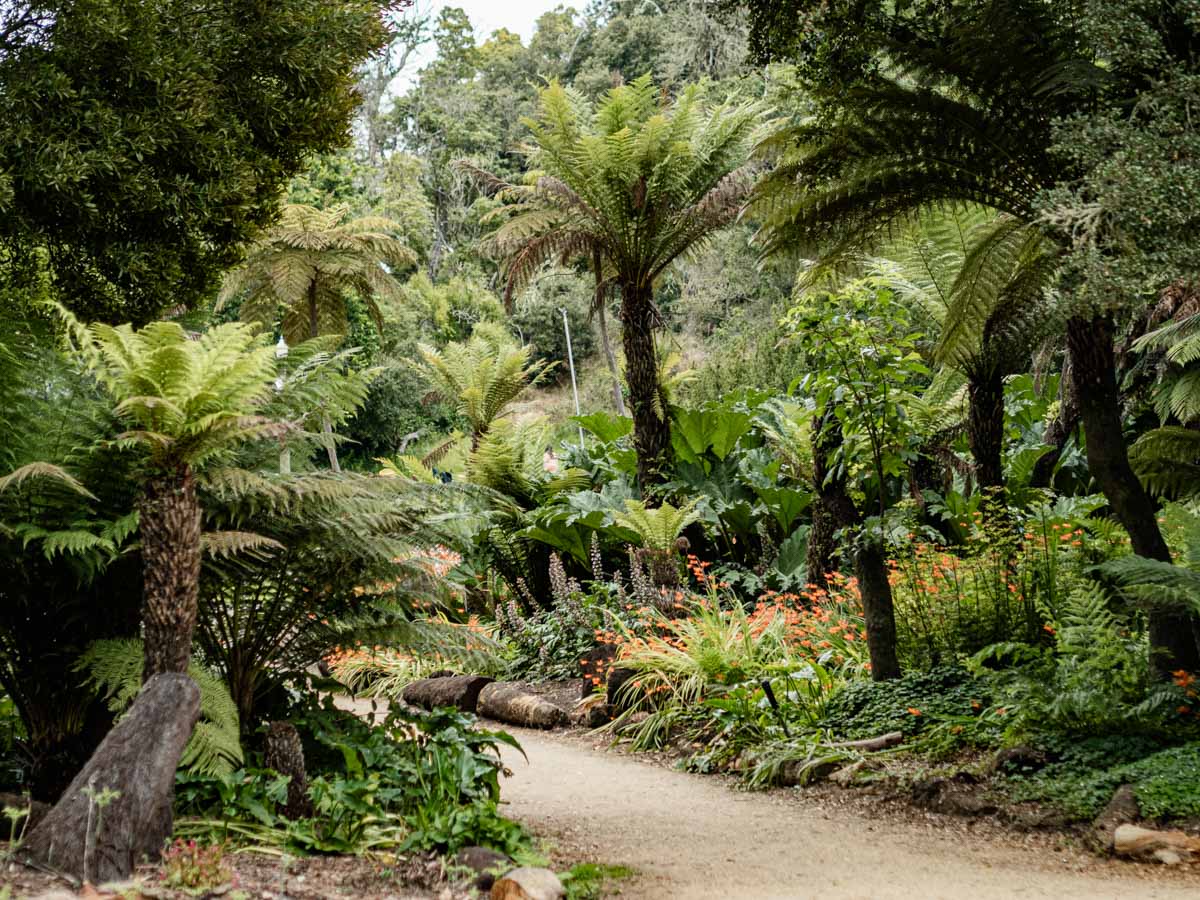I had plans this past weekend to pay what is becoming a monthly visit to the Rose Garden this blooming season, but, alas, those bushes are done (fingers crossed for a last hurrah in September). Still wishing to capitalize on the foggy yet brightly lit skies over San Francisco (a photographer’s dream), I instead allowed myself to be lured into the Tree Fern Dell and Lily Pond by lush giant ferns and copious vibrant flowers arising from an otherworldly backdrop.








Just beyond the ferns (okay, sorry, momentary chuckle as I think of “between two ferns”) is the serene oasis that is the Lily Pond. It’s quite tucked away and not really on the way to anywhere in particular in the park, so it feels like a little secret jungle-garden just for you.



Not too many water lily blooms to be spotted (saw exactly one flower “floating” in the water), though the algae sure is thriving!


I also delighted in unexpectedly coming across colorful pops of blue and pink in the flowering (and fruiting) shrubs and trees nearby:




Side note: a happy challenge often arises when I photograph plants simply for their visual virtues and am later stumped when trying to label the image files, sending me on initially frustrating but (mostly) eventually rewarding internet missions to identify them. While plant identification apps abound, I stubbornly subject myself to entering the most unimaginative yet literally descriptive keywords I can think of into Google Search (think “blue oblong berries tree” and “fuzzy pink flowers”, sometimes accompanied by a geographic location) and manually assessing dozens of related images—it’s the extra hobby I never knew I needed, apparently.






All to say that I am pleased as punch to have learned the names of mahonia, spiraea douglasii, crocosmia, and variegated elderbery using the aforementioned method. I will admit, however, to offering up photos of acanthus to a plant identification website; it was just impossible otherwise! Funnily enough, upon discovering that the plant I had photographed was indeed acanthus, I immediately recognized the name for the prevalence of its leaves (which I did not photograph as closely as the rest of the plant) as a motif in Western decorative art as far back as the 5th century B.C. (yes, this is totally normal for me as a former textile designer). Fun stuff, huh?

Anyway, I hope you enjoyed this little detour! Stop by again sometime.


Leave a Reply